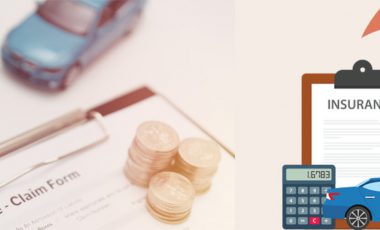Gap Insurance on Used Cars: Maximize Protection For Pre-Owned Vehicles
The journey of owning a used car often begins with excitement and a sense of achievement. You’ve just secured a vehicle that fits your budget and needs, perhaps with a few miles on the odometer but still plenty of life left. However, along with the joy of car ownership comes the responsibility of safeguarding your investment, particularly from the unforeseen financial pitfalls that could arise from accidents or theft. This is where gap insurance on used cars becomes your unseen ally, working silently in the background to protect you from potential financial discrepancies.
How does gap insurance work for used cars?
Gap insurance is crucial for drivers who are financing their vehicle, whether it’s new or used, especially as cars can lose value quickly. This type of insurance becomes important if you find yourself in a situation where you owe more on your loan than the car’s current market value—this is known as negative equity.
If your vehicle is stolen or declared a total loss, your primary car insurance will cover the loss but only up to the car’s current value, which might not be enough to clear your outstanding loan.
Gap insurance covers this shortfall, ensuring that you can settle your loan fully and walk away without financial burden. While it’s often associated with new cars, gap insurance is equally valuable for used cars, depending on your loan terms. Sometimes, it might even be mandatory to purchase gap insurance to protect both your interests and those of your lender should an unfortunate incident render your car a total loss.
When to consider gap insurance for used cars
Deciding when to purchase gap insurance for a used car is pivotal. Generally, it is advisable to consider this insurance if you:
- Low Down Payment: If you put down less than 20% on your vehicle, the initial loan balance remains high relative to the car’s value. This higher initial loan amount increases your risk of negative equity, making gap insurance a wise choice to protect against potential financial discrepancies.
- Extended Financing Period: Financing your vehicle for 60 months or more spreads out your payments, which can slow down the rate at which you gain equity in the car. Gap insurance is beneficial here as it covers the prolonged period during which you could owe more than the car’s worth.
- Leasing Requirements: Leases often include gap insurance as a mandatory feature because leased vehicles must be returned in good condition or bought at residual value at lease end, protecting both lessee and lessor from financial losses due to accidents or theft.
- High Depreciation Models: Some cars depreciate faster than others. If you purchase a model known for rapid depreciation, you’re more likely to face negative equity early on. Gap insurance helps manage this depreciation by covering the difference between the loan balance and the depreciated value.
- Negative Equity from Previous Loans: Rolling over negative equity from a previous vehicle loan adds that old debt to your new loan, immediately putting you at a financial disadvantage. Gap insurance is particularly useful in these scenarios to ensure that you’re not stuck paying for a previous car’s balance on top of your new one.
These scenarios increase the likelihood of facing a gap between the insurance compensation and your loan balance in the event of a total loss.
What is the cost of gap insurance on a used car?
The cost of insuring a used car can vary significantly based on where you purchase your insurance. Typically, used cars are among the least expensive to insure. When added to your existing auto insurance policy, gap insurance might only cost between $50 to $70 a year. However, buying it directly from a dealership could set you back significantly more.
If your lender doesn’t require gap insurance and your loan amount is less than the actual cash value of your car, adding gap insurance may unnecessarily inflate your insurance expenses. Once your car loan is paid off or the car is sold, you can cancel your gap insurance to possibly receive a refund and lower your overall insurance costs.
Which companies are offering gap insurance on used cars?
Choosing gap insurance on used cars is a prudent financial move, particularly when selecting from reputable car insurance companies like:
Each company offers different policies with varying coverage specifics, eligibility criteria, and pricing. To ensure you get the most suitable protection for your vehicle, it’s essential to meticulously review and compare these policies. Opting for a provider known for excellent customer service and reliability will help secure your investment efficiently, aligning the coverage with your budget and needs.
In conclusion, gap insurance is a crucial safeguard for used car owners, bridging the gap between what your insurance pays and what you still owe on your car loan after unexpected incidents. By understanding its importance, recognizing when you need it, and knowing where to find the best options, you can make your car ownership experience both enjoyable and secure. Remember, investing in gap insurance is more than just protecting against potential losses; it’s about maintaining financial stability.

We generated 12,100,000+ Quotes (...counting), Helping People to Save Money and Time.
Editorial Guidelines: The above is meant as general information to help you understand the different aspects of auto insurance. This information does not refer to any specific auto insurance policy. Coverages and other features vary between insurers, vary by state, and are not available in all states. References to costs of coverages/repair, average or typical premiums, amounts of losses, deductibles, etc., are indicative and may not apply to your situation. We encourage you to speak to our insurance representative and to read your policy contract to fully understand your coverages.
Featured Posts

Cheapest Car Insurance After a DUI: Discover Wallet-Friendly Options

Cheap Liability-Only Car Insurance for 2024: Complete Guide

